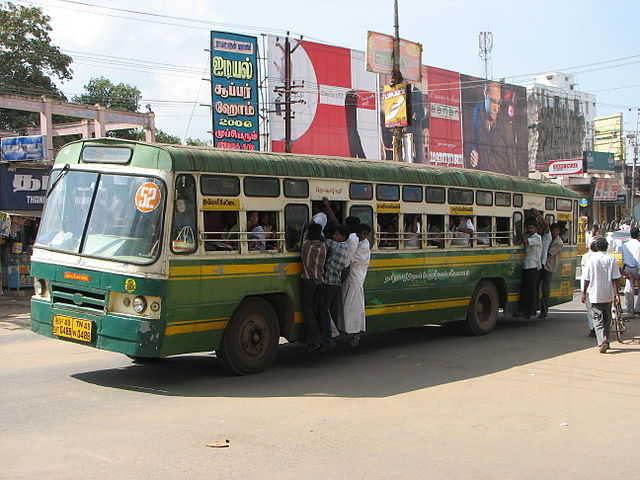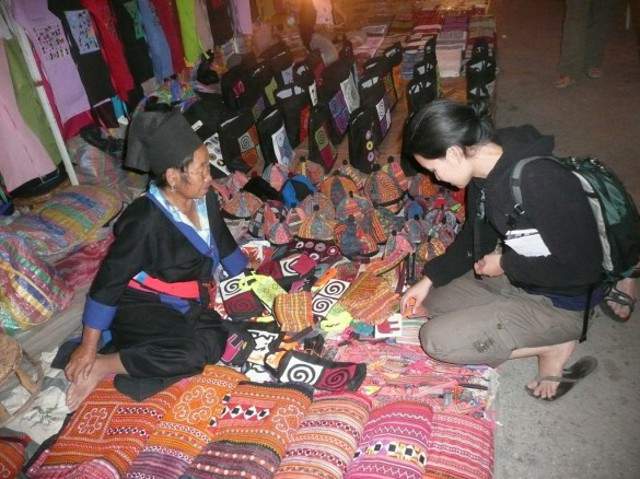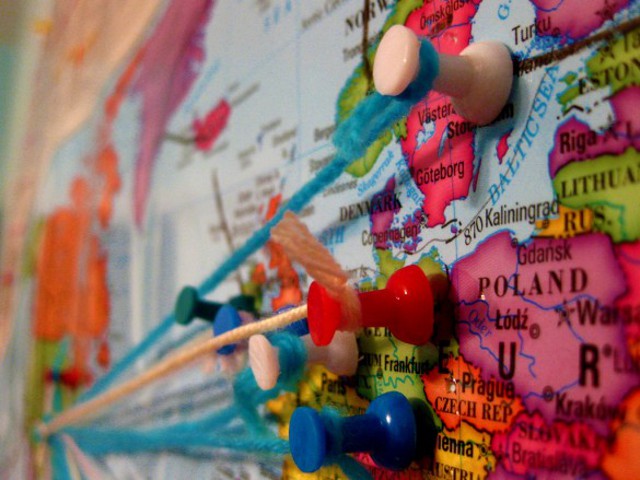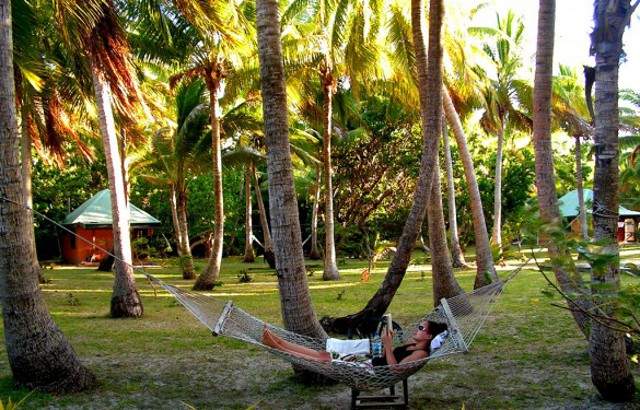In anticipation of this year’s Meet, Plan, Go event on September 20, we’ll be focusing on the concept of career breaks each Thursday until the event. If you’re on the fence about taking a career break, or you’re planning one and want expert advice from people who have been there and done that, this is the event for you! Register now as space is limited.
Rewind a generation, and the backpackers breaking the first ground of the banana pancake trail in the 1960s were largely students exploring beyond their childhood horizons before committing to a career that promised to last a lifetime.
Times have changed, and while the classic post-study gap year is still going strong, the indie travel population is increasingly made up of a mix of people taking time out at a various stages of life, including mid-career.
There are many reasons why people interrupt their career mid-flow to undertake extended travel: an insatiable desire to see the places that have otherwise served only as screensavers; an altruistic want to do more than line the deep pockets of corporations; an opportunity to re-evaluate if the career chosen by a younger self is still the right one. The prompts are plentiful, and the defining moment when you commit to taking a career-gap is exhilarating…if not equally terrifying.
However, there is a nuance to culture shock that career-gap travelers shouldn’t overlook – coping with life beyond the office.
With a route planned and booked, attention often turns to the first weeks of travel. Will you be able to adapt? Can you contend with potential culture shock? New cities, new foods, new faces, new currency, new language, new…well, everything; it’s a lot to take in, especially when the honeymoon glow of newness wears off, and all that’s left is a strange city, strange foods, strange faces…Thankfully, the concept of culture shock is not new, and most travelers can navigate it successfully. However, there is a nuance to culture shock that career-gap travelers shouldn’t overlook – coping with life beyond the office.
What? Acclimatize to not having the nine to five?
That’s going to be the easiest part of travel, right? Possibly not. Of course, setting your voicemail to “out of office” for a promisingly long time is going to pack a feel-good punch, but it also signals a radical change in lifestyle which can require more adjustment than you might expect. This is particularly so if you’ve spent the past several years becoming increasingly sucked into the gravitational pull of a corporation’s needs. Whether you realize it or not, any commitment that determines your time for a minimum of five days a week, eight hours a day shapes your life and can make the transition from worker to world wanderer that much more tricky to navigate.
The good news is that if you know what to expect, you can take steps that will help you adjust better and sooner. I traded corporate life for a backpack after eight years married to my clients (metaphorically). With a decent salary to leave behind and an addiction to work email, here is what I wish I’d known when I swapped my Blackberry for a backpack.
Get set for a serious gearshift

In a business world where everything needs to have happened yesterday, with one eye on future strategies while not forgetting to engage with customers in the moment, it’s no surprise that traveling for pleasure presents a vastly different pace of life. Suddenly you’ll find yourself in a world where you don’t need to be anywhere in less than five minutes with four hundred things to do before you get there. Travel happens on your time, and one of the best things you can do in the first few weeks is take your foot off the accelerator and shift from top speed to an idling snails pace. Let’s face it, there’ll be another bus tomorrow, and the ancient ruins that have been standing for millennia are not going anywhere soon.
Travel happens on your time, and one of the best things you can do in the first few weeks is take your foot off the accelerator and shift from top speed to an idling snails pace.
If you’re used to short vacations and packed work schedules, it can be tempting to approach your trip in the same way as you might tackle a busy to-do list, ticking off sights and experiences at pace. However, whistling through each new location will give you nothing more than an imprint of the guidebook’s top sights. It’s only when you stop, absorb the moment, and engage with your surroundings that you truly feel the texture of a place. Get lost in the city’s streets. Spend time people watching. Sample every unfamiliar food you can find. Sit down for a coffee with the locals. This is what you’ve been missing as you’ve hurtled through each working week. This is what will give you the greatest richness to your trip.
Read Travel Burnout: Is it Real? Will I Get It?
Embrace reduced personal space

The chances are that your working life afforded you a place of your own, whether it’s an apartment or a room in which you are the sole occupant, and even if your commute involved taking a stuffed metro, it will feel like child’s play compared to the serious cramming experienced in some other countries. In short, your pre-travel life is probably filled with ample personal space, and unless your trip involves private transport and hotel rooms, this is going to reduce dramatically.
For most people, a long-term travel budget equals dorm accommodation where the best-case scenario means sharing with at least three other people (long houses can hold 30 or more), and it’s not uncommon for four people to share a seat on India’s trains, not to mention the legs dangling from the luggage compartment.
A sudden sense of crowding can leave you longing for your own space, and it can be tempting to find it in the solace of your earphones on bus journeys or behind a book within the confines of your bunk. While that’s fine now and again, you shouldn’t let it become a habit. Listening to your favorite track might feel like an escape from the constant presence of people, but the memory that is more likely to stick is the conversation with the farmer whose sheathed machete rested on your leg for six hours (true story), and although those people sharing your dorm might have seemed annoyingly noisy when they rolled in at 4am, they are potential friends for life if only you spend some time getting to know them.
Read about How Overland Travel Differs Between Regions
See the positive side of no salary

If you’ve managed to magically orchestrate a paid-for sabbatical, then please share your skills in the comments below. For everyone else, one of the harshest realities of leaving a career to travel is adapting to the lack of income. Of course, you will have a budget, but its unlikely to be anything near the disposable cash you had when you were clocking up office hours. To add to the problem, you will find yourself on the loose everyday surrounded by new and exciting purchasing opportunities from local crafts to enticing foods.
Stepping away from the tourist restaurants, which will quickly chew through your budget, in favor of markets and street food stalls you will get a greater sense of how the locals live.
The first thing to accept is that your spending is likely to be a bit erratic during the first few weeks as you adapt. I cringe when I recall an impulsive designer handbag purchase in Rome that put a crater in my budget and left me with an item that I ended up posting home. The upside is that with time on your hands and a budget to keep, you have the opportunity to learn the basic cost of living in the country you’re visiting. Stepping away from the tourist restaurants, which will quickly chew through your budget, in favor of markets and street food stalls you will get a greater sense of how the locals live. Managing to source dinner for under $1 can be a rewarding and humbling experience and is usually more tasty than the tourist version can manage.
As for souvenirs, it doesn’t take long to realize that purchases equal pounds (weight, not British currency), and your aching back will naturally help curb your material tendencies. Without new items to purr over, you’ll start to find other things to take pleasure in. Fortunately there will be plenty of non-material experiences ready to fill the gap.
Read about Working on the Road and the realities of Working as a Location Independent Professional
Ditch routines and habits

Offices tend to gather your life into a regiment of routines: rousing to the sound of your alarm clock, spending your day tethered to your desk except for a brief lunch and occasional coffee breaks. Come evening you may hit the gym to work off the excess of an otherwise sedentary lifestyle followed by a quick-cook dinner and collapsing into bed ready to do it all again. Ok, this might seem like an office-life stereotype, but whatever your pre-travel days looks like, it’s highly likely to involve a routine where your sleeping, waking, eating, and exercise habits are organized to fit around work.
Casting aside the constrains of work routines and realizing that you have the freedom to live according to what your body desires is a liberating experience.
The beauty of extended travel is that you have the rare opportunity to rediscover your body’s natural rhythm. Casting aside the constrains of work routines and realizing that you have the freedom to live according to what your body desires is a liberating experience. Try to spend the first few weeks shedding your old routines. Sleep when you’re tired, which includes a small nap at 3pm if you want. Eat when you’re hungry, you may realize your appetite isn’t what it was or your natural mealtimes not when you thought. Stay up late, have a lie in, and perhaps best of all, ditch the air-conditioned artificial exercise conditions. Do yoga in the park, take a walk on the beach, experiment with extreme sports. The quicker you leave behind old notions of routine, the quicker you can get in tune with your natural rhythm.
Read Rethinking Traditional Travel: 7 Tips to Break the Mold
Implement a prohibition on planning

The only things certain in life are death, taxes…and to add another one, changing travel plans. Unlike a vacation, when a hassle-free break means booking beds and transport in advance, a long-term trip can’t be managed in the same way. Sure, having a few nights planned in each new spot can be a good idea, and plotting out a rough timetable will ensure you make it to the places on your must see list, but the most important thing about any plans you make is that they need to be limited and flexible.
Stay flexible, ditch the spreadsheet, and live each day as it comes.
Moveable timetables and unstructured weeks are the antithesis of corporate life where plans are made and stuck to, or heads may roll, and so the flaky notion of going with the flow can be difficult to adopt, especially at first. It’s not uncommon to want to resist the flexibility and charge forth with an impressive color coordinated schedule expertly presented in an Excel spreadsheet, but it only takes a couple of wrinkles – a road block in South America or flash floods in Thailand – to send ripples across your entire plan.
The one fact that will remain true through your trip is that circumstances will continually conspire to throw you off course, and even when you do have full control, your own sense of what you want can frequently change. You’ll meet people that you want to spend more time with, and you may arrive in a town that doesn’t have the vibe you’d hoped for. If your next 12 hostels are already booked, you’ll either end up sticking to a plan that has become less ideal or face the prospect of a time consuming and costly re-booking process. Stay flexible, ditch the spreadsheet, and live each day as it comes.
Read Planning Your RTW Trip – Overplanning vs. Spontaneity and Why You Should Slow Down
Terminate your connection

I was a serious failure on this front. I took a netbook traveling, and while I don’t regret the flexibility it gave me to stay in contact, I spent the first few weeks opening it up every day. Although I no longer had a bulging inbox of queries to answer and problems to solve, I checked in anyway, even if only for a while. Blackberries and iPhones have made workers 24/7 contactable, and the addiction to connectivity can get so ingrained in your lifestyle that many people flounder when it comes to learning a new way of life that involves switching off.
When I look back, I can’t recall what I did during the hours I wasted online, but I do know I wasn’t exploring the world or taking advantage of my new surroundings. Hostel social areas are increasingly a sight of travelers tucked behind screens, chatting online and missing the chance to talk to the person next to them who, almost guaranteed, did something more interesting than the friends you’re online with back home.
When I look back, I can’t recall what I did during the hours I wasted online, but I do know I wasn’t exploring the world or taking advantage of my new surroundings.
If you are a techno junkie, that’s fine, many people do travel with electronics, but unless you’re planning on writing your life story (a blog doesn’t count), be strict and limit your time online. When all else fails, check your travel budget, which should serve as a healthy reminder that you’re no longer being paid to be connected.
Read about what gadgets to bring on your career break trip
Redefine busy

Before travelling, your everyday life is packed with things to do, places to be, and people to see – work, friends, family, trying to squeeze in that movie everyone’s talking about. Life is busy, and there is little time to think about it. Then, you set off on your travels, and all of a sudden you don’t need to work, your friends and family are far away, and you realize you never did fancy that film after all. It’s not uncommon to feel a bit lost and without purpose, and if you’re not careful, you might find yourself turning to the very habits you should be trying to break – going online to create a false perception of busy, trip planning because planning is familiar, and continuing old routines because getting up at 6am and speeding through your day makes you feel less like a slob.
A career-gap is a time to discover what it is you enjoy, and this will often look very different to your previous lifestyle.
First, it’s important to get some perspective. For many people, a career gap is a one-off experience in your life, and you should allow yourself some indulgence. Sitting under a tree letting mango drip down your chin might not be considered a worthwhile way to spend a working day, but it ticks the busy box in travel terms. A career-gap is a time to discover what it is you enjoy, and this will often look very different to your previous lifestyle. Some days it might mean getting close to nature, others it might involve a trip to a gallery. Volunteering, swinging in a hammock, building a sandcastle, learning a language – there are many ways to spend your day, and if it gives you a sense of personal satisfaction, it has been a success, and that should be all the busy you need.
To read more about career breaks and long-term travel, check out the following articles and resources:
- Sign up for Plan Your Career Break in 30 Days
- 12 Career Skills That Travel Will Improve
- Why It’s Not Crazy for Working Professionals to Quit Their Jobs and Travel the World
- Why a Travel Break Can Be the Best Career Move You’ll Ever Make
- Should You Go on a RTW Trip? How to Know if Long-Term Travel is Right for You
- Should You Quit Your Job to Travel in a Still Uncertain Economy?
- Top 10 Reasons to Take a Career Break…and Travel
Photo credits: raider of gin, ShedBOy, Bernard Gagnon, joaquinuy, Andrew Kalat, cali4beach, FaceMePLS, phunkstarr

